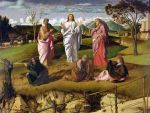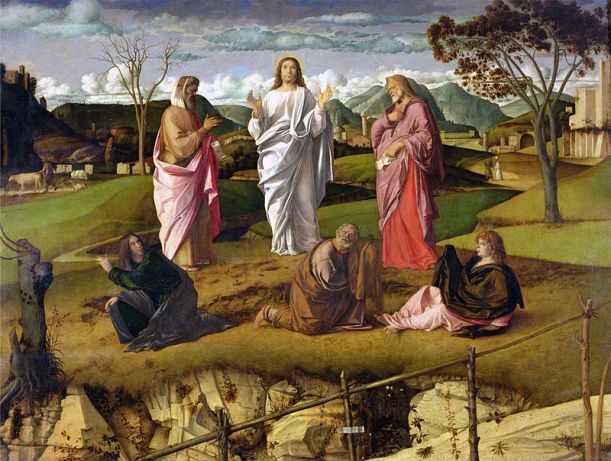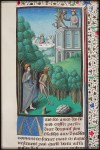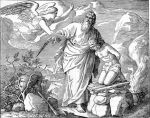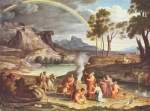
Adoration of the Trinity (Landauer Altarpiece), Albrecht Dürer, 1511, oil on poplar panel, Kunst-historisches Museum, Vienna.
In one of my posts on Facebook last week, a comment was made that our religion was ‘repressive’ (referring to my support for traditional marriage). By that, the speaker meant ‘how dare you tell other people how to behave’! (The people who say these sorts of things are usually, by the way, advocates of free speech.) Actually, the Church doesn’t tell ‘other people’ how to behave. It tells its members how to behave, and it is the job of these members (the faithful) to advocate for best practice in the public square, for the good of society. It is also the job of the faithful to bring up their children to follow the good, the true and the beautiful and to repress (yes, repress – or suppress, if you want to be less Freudian) its baser desires: selfishness, unfaithfulness, dishonesty, disobedience, pride, lust, envy, and so on.
In today’s Readings from Hebrews and the Gospel of John, we see Jesus wrestling with the natural desire not to die (i.e. repressing this desire), versus obedience to the Divine plan:
During his life on earth, Christ offered up prayer and entreaty, aloud and in silent tears, to the one who had the power to save him out of death, and he submitted so humbly that his prayer was heard. Although he was Son, he learnt to obey through suffering; but having been made perfect, he became for all who obey him the source of eternal salvation. (Heb 5:7-9)
and again in today’s Gospel:
‘Now my soul is troubled.
What shall I say:
Father, save me from this hour?
But it was for this very reason
that I have come to this hour.
Father, glorify your name!’ (Jn 12:27-28)
In Jesus of Nazareth, Vol. 2, Pope Benedict discusses the troubled soul of Jesus:
The great Byzantine theologian Maximus the Confessor (d. 662) formulated an answer to this question [on the relationship between Jesus’ humanity and divinity] by struggling to understand Jesus’ prayer on the Mount of Olives. Maximus is first and foremost a determined opponent of monotheletism: Jesus’ human nature is not amputated through union with the Logos; it remains complete. And the will is part of human nature. This irreducible duality of human and divine willing in Jesus must not, however, be understood to imply the schizophrenia of a dual personality. Nature and person must be seen in the mode of existence proper to each. In other words: in Jesus the “natural will” of the human nature is present, but there is only one “personal will”, which draws the “natural will” into itself. And this is possible without annihilating the specifically human element, because the human will, as created by God, is ordered to the divine will. In becoming attuned to the divine will, it experiences its fulfillment, not its annihilation. Maximus says in this regard that the human will, by virtue of creation, tends toward synergy (working together) with the divine will, but that through sin, opposition takes the place of synergy: man, whose will attains fulfillment through becoming attuned to God’s will, now has the sense that his freedom is compromised by God’s will. He regards consenting to God’s will, not as his opportunity to become fully himself, but as a threat to his freedom against which he rebels.
The drama of the Mount of Olives lies in the fact that Jesus draws man’s natural will away from opposition and back toward synergy, and in so doing he restores man’s true greatness. In Jesus’ natural human will, the sum total of human nature’s resistance to God is, as it were, present within Jesus himself. The obstinacy of us all, the whole of our opposition to God is present, and in his struggle, Jesus elevates our recalcitrant nature to become its real self.
The question for each of us is: do we experience God as a threat to our freedom, or do we desire God so much that we happily allow him to use our freedom for his purposes, and in so doing, achieve true self-fulfilment?
Mass readings for today …
Word format: Year B Lent 5th Sunday 2015
Pdf format: Year B Lent 5th Sunday 2015
Other resources:
- Listen to Fr Barron’s homily for today.
- Scripture study for this weekend.
-31.494506
115.585608




